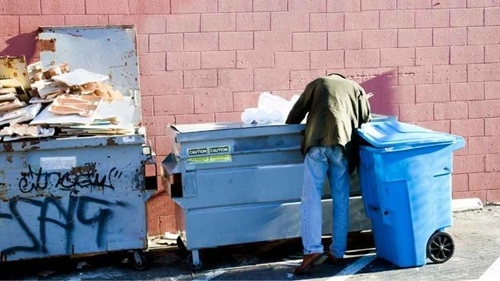Burning old clothes might seem like an easy way to dispose of unwanted garments, but in the United States, doing so can raise several legal and environmental issues. While burning clothes isn’t always directly illegal under federal law, it can violate local fire codes, environmental regulations, and public safety laws, depending on how and where it’s done. Let’s break down the details.

Federal Law: Environmental Concerns
Under federal environmental laws, such as the Clean Air Act, it’s illegal to burn materials that release harmful pollutants into the air. Most clothing today is made from synthetic fibers like polyester, nylon, and acrylic — all of which are derived from plastics. When burned, these materials release toxic chemicals, including dioxins and volatile organic compounds (VOCs), which are harmful to both humans and the environment.
- EPA (Environmental Protection Agency) discourages any form of open burning.
- Burning clothing in your backyard, if it produces thick black smoke or releases harmful gases, could be considered a violation of federal air quality standards.
In short, while the act of burning clothes isn’t directly outlawed federally, the emissions it causes can make the act illegal.
State and Local Laws: The Key Factor
Most legal restrictions come from state or local fire and environmental laws.
Many cities and counties have open burning bans, especially in residential areas.
Common local regulations include:
- No open burning without a permit.
- Burn bans during dry seasons or air-quality alerts.
- Prohibition of burning synthetic materials or household waste (which includes clothes).
For example:
- California: Strictly prohibits open burning of non-yard waste materials due to wildfire risks.
- Texas: Allows limited burning with a permit but forbids burning synthetic materials like clothing.
- New York: Completely bans the burning of trash, including textiles, in most residential areas.
Violating these laws can result in fines ranging from $100 to over $1,000, depending on the jurisdiction.
Fire Safety and Public Nuisance Laws
Even if there’s no specific ban on burning clothes, you can still face legal consequences if:
- The fire spreads or damages nearby property.
- It causes injury to others or yourself.
- It creates nuisance smoke that affects neighbors.
- You fail to comply with local fire safety codes.
In such cases, local law enforcement or the fire department can issue citations or even criminal charges for reckless endangerment or creating a public hazard.
Safe and Legal Alternatives to Burning Clothes
If you want to dispose of clothes responsibly, consider these eco-friendly and lawful options:
- Donate wearable items to charities or shelters.
- Recycle through textile recycling programs.
- Repurpose old fabrics for cleaning rags or craft projects.
- Sell gently used items online or at thrift stores.
Not only are these options safer, but they also help reduce waste and pollution.
FAQs on Burning Clothes in the U.S.
Q. Is it illegal to burn clothes in your backyard?
In most cases, yes — especially if your area has an open burning ban or if the clothes contain synthetic materials. Always check your local fire department or environmental agency for specific rules.
Q. Can I get fined for burning clothes?
Yes. Depending on your state or county, fines can range from $100 to $1,000 or more for violating local air quality or fire safety laws.
Q. What if I only burn a few natural-fiber clothes (like cotton or wool)?
Even then, you may still need a permit, and you must ensure the fire doesn’t pose a safety or smoke hazard. Many areas still prohibit any open burning of household materials.
Q. Are there federal penalties for burning clothes?
Directly, no. However, if the fire produces toxic smoke that violates Clean Air Act standards, you could face EPA enforcement actions.
Q. What’s the safest way to get rid of old clothes?
Donating, recycling, or repurposing are the safest and most lawful methods. Many cities also have textile recycling bins or pickup services.
Conclusion
While it might not seem like a big deal, burning clothes can easily become illegal under U.S. law. The combination of environmental, safety, and nuisance regulations means it’s usually not worth the risk. Always check your local ordinances, and when in doubt, choose a safe, eco-friendly disposal method instead.

